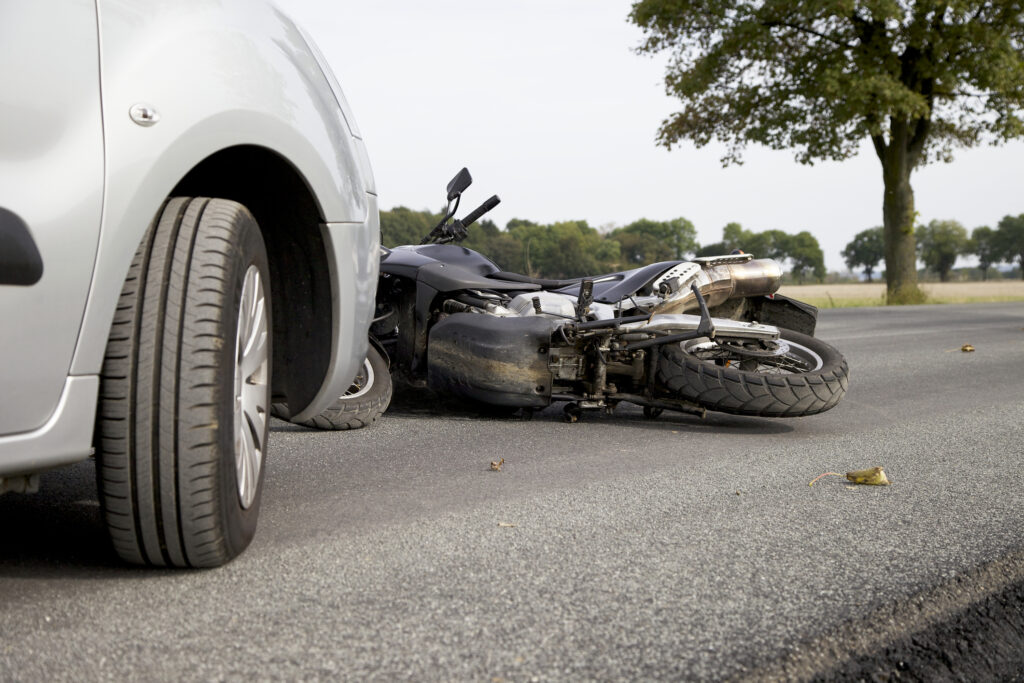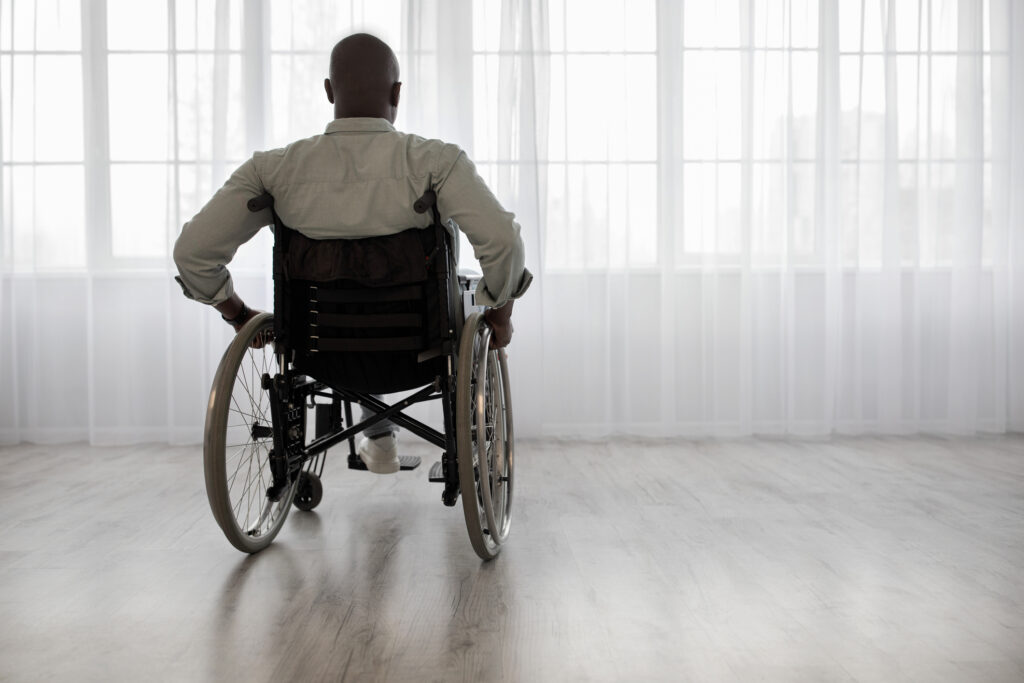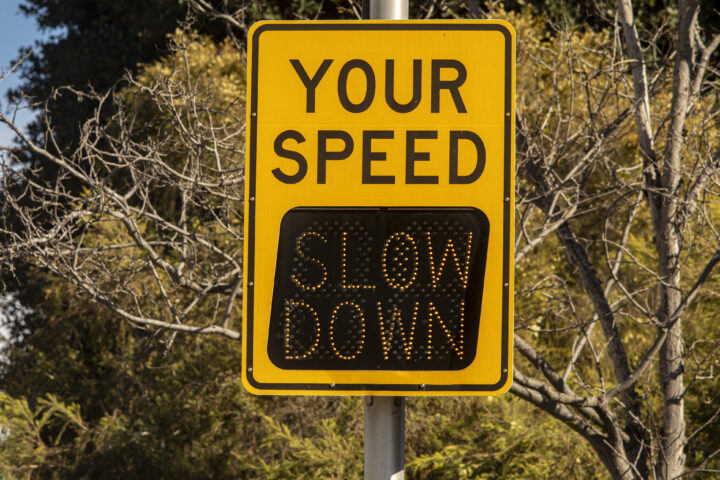Motorcycle vs. Car Accident: Similarities and Differences

It’s crucial for motorcycle accident victims to be aware of the differences in legal proceedings and compensation for motorcycle accidents versus car accidents. Motorcycle riders are more likely to be seriously injured or killed in a crash, and may incur higher medical expenses. Additionally, motorcyclists may have a different level of insurance coverage than passenger vehicle occupants.
In this blog post, we will explore the distinct aspects of motorcycle versus car accidents, highlighting the legal challenges faced by motorcycle riders and the unique considerations that come into play when seeking compensation.
Fundamental Differences in the Dynamics of Car and Motorcycle Accidents
According to recent car accident statistics, there were a total of 39,508 fatal motor vehicle accidents across the United States in 2021. Of this number, 5,932 motorcyclists died in auto accidents. Motorcyclists make up about 14% of all traffic fatalities.
Several factors contribute to motorcycle accidents, including size and weight disparities, lack of protection for motorcyclists, and increased exposure to potential hazards.
- Size and weight disparities: Motorcycles are much smaller and lighter than passenger cars. This means that they are less visible and more vulnerable to being hit by cars. Motorcycles also don’t have crash protection like passenger vehicles that have crumple zones.
- Lack of protection for motorcyclists: Motorcycle riders are not protected by a car’s frame, seat belts, or airbags. Thus, motorcyclists are more likely to be injured or killed in an accident. According to recent motorcycle accident statistics, there were 5,932 motorcyclist deaths in 2021.
- Increased exposure to potential hazards: Motorcycle riders are more vulnerable to the elements such as weather. Riders are more exposed to the wind, rain, and sun. Motorcyclists are also more susceptible to the effects of road conditions than cars including potholes, wet pavement, or loose gravel. This can make it difficult to see and be seen and can make it more difficult to control the motorcycle.
Challenges and Considerations Unique to Motorcycle Crashes
There are many potential legal challenges and considerations unique to motorcycle accidents. Some of these challenges include:
- Bias against motorcyclists: There is a common misconception that motorcyclists are more likely to be at fault for accidents than car drivers. Motorcyclists may find it more challenging to recover damages after an accident. In addition, the car driver’s insurance company may try to pin the fault on the motorcyclist.
- Difficulty establishing fault: In motorcycle accidents, proving who was at fault can be challenging because motorcycles are smaller and more difficult to see than cars.
- Influence of helmet laws: Helmet laws can impact the outcome of motorcycle accident cases. In states with helmet laws, motorcyclists who are not wearing a motorcycle helmet may be found to be partially at fault for their own injuries.
If you have been injured in a motorcycle accident, speaking with an experienced motorcycle accident lawyer is important. A lawyer can help you understand your legal rights and options and can represent you in court if necessary.
Differences in Insurance Coverage for Motorcycles and Cars
Insurance coverage for motorcycles and cars can differ significantly due to the unique risks and characteristics associated with each type of vehicle. Understanding these differences is crucial for individuals who own or ride motorcycles, as it can impact their protection and financial security in the event of an accident.
Key differences in insurance coverage for motorcycles and cars, including mandatory requirements, optional coverage, and policy limitations:
Mandatory Insurance Requirements
Cars: In most jurisdictions, car owners are legally required to carry a minimum level of liability insurance coverage. This coverage typically includes bodily injury liability and property damage liability, which provides compensation for injuries or damages caused to others in an accident.
Motorcycles: Mandatory insurance requirements for motorcycles can vary by state. Some states may mandate liability insurance similar to cars, while others may have different requirements or none at all. It’s essential for motorcycle owners to understand and comply with the specific insurance regulations in their state.
Liability Coverage
Cars: Liability insurance for cars typically includes coverage for bodily injury and property damage caused to others in an accident. The coverage limits can vary, but they are generally higher compared to motorcycle liability coverage due to the potential for greater damages in car accidents.
Motorcycles: Liability coverage for motorcycles also compensates for bodily injury and property damage caused to others. However, the liability limits for motorcycles are often lower compared to cars due to the perception of increased risk associated with motorcycles.
Optional Coverage
Cars: Car owners can purchase additional coverage beyond the mandatory liability insurance. This may include comprehensive coverage, collision coverage, uninsured/underinsured motorist coverage, and medical payments coverage. These optional coverages provide additional protection for the car owner and their vehicle.
Motorcycles: Similarly, motorcycle owners can purchase additional coverage to enhance their protection. Optional motorcycle coverage may include comprehensive coverage, collision coverage, uninsured/underinsured motorist coverage, and accessory coverage.
These options can compensate for damages to the motorcycle, injuries to the rider, and protection against uninsured or underinsured drivers.
Policy Limitations
Cars: Car insurance policies often have higher policy limits due to the greater potential for property damage and severe injuries in car accidents. Policy limits determine the maximum amount the insurance company will pay for covered losses.
Motorcycles: Insurance policies for motorcycles may have lower policy limits than cars due to the perception of increased risk and potential for severe injuries in motorcycle accidents. These lower policy limits can impact the amount of compensation available in the event of a claim.
Premiums
Cars: Car insurance premiums are generally lower than motorcycle insurance premiums due to the lower perceived risk associated with cars. Premiums are influenced by factors such as the driver’s age, driving record, the make and model of the car, and the location where it is primarily driven.
Motorcycles: Motorcycle insurance premiums are typically higher compared to cars due to the increased risk factors associated with motorcycles. Factors that influence motorcycle insurance premiums include the rider’s age, riding experience, the make and model of the motorcycle, and the location where it is primarily ridden.
It’s important to note that insurance coverage and requirements can vary significantly based on the state and the insurance provider. Motorcycle and car owners should consult with insurance professionals who specialize in motorcycle insurance to ensure they have appropriate coverage that meets their specific needs.
Compensation in Motorcycle vs. Car Accident Cases
Several factors come into play when determining the amount of compensation awarded in car vs. motorcycle accident cases. These factors consider the unique characteristics of each type of accident and their specific impact on the victim’s life.
Understanding these factors is crucial for both victims and their legal representatives to ensure fair compensation.
Factors that Can Impact the Amount of Compensation Awarded
The Severity of Injuries
Motorcycles offer far less protection than cars, making riders more vulnerable to severe or fatal injuries. Factors such as broken bones, spinal cord injuries, traumatic brain injuries, and internal organ damage can significantly impact the compensation awarded.
In car accidents, the severity of injuries may also vary but can be influenced by factors like seatbelt usage, airbag deployment, and the structural integrity of the vehicle involved.

Long-Term Disabilities
Motorcycle accidents can result in long-term or permanent disabilities, including paralysis, loss of limbs, or chronic pain. These disabilities can substantially impact the victim’s quality of life and earning capacity, thus influencing the compensation amount.
Car accident victims may also experience long-term disabilities. Still, the severity and nature of these disabilities can differ based on factors such as the type of accident, speed of impact, and the location of the injury.
Impact on Quality of Life
Motorcycle accidents can profoundly impact a victim’s quality of life, potentially leading to emotional distress, psychological trauma, loss of enjoyment of activities, or changes in personal relationships. Compensation may take into account these intangible damages and the resulting emotional suffering.
Car crash victims may also experience a significant impact on their quality of life, and compensation can be awarded for emotional distress, mental anguish, and loss of enjoyment of life.
Medical Expenses
Motorcycle and car accidents often result in substantial medical expenses, including emergency medical treatment, hospital stays, surgeries, rehabilitation, and ongoing therapies. The amount of compensation awarded will consider these expenses and any future medical costs the victim may incur.
Motorcycle accidents, given the higher likelihood of serious injuries, may often result in more significant medical expenses compared to car accidents.
Property Damage
Car accidents typically involve damage to the vehicles involved, which may include repair costs or the total loss of the car. Compensation for property damage will be factored into the overall compensation amount.
Motorcycle accidents may also involve property damage, such as damage to the motorcycle, riding gear, or other personal belongings. Compensation for these damages will be considered.
Loss of Income
Both motorcycle and car accidents can result in temporary or permanent loss of income. Compensation may be awarded for lost wages, reduced earning capacity, or the inability to return to work.
Motorcycle accident victims may face more challenges returning to work due to their injuries, which can affect their long-term earning potential.
Other factors, such as the victim’s age and pre-existing conditions, auto insurance coverage, and state laws, can also impact the compensation awarded.
Contact an Auto Accident Attorney Today
Hiring an attorney specializing in motorcycle and car accident cases is vital to protect your rights, navigate the legal complexities, and maximize your compensation. Experienced attorneys’ knowledge, expertise, negotiation skills, and trial experience will provide you with peace of mind and ensure that you have the best possible chance of obtaining a fair resolution for your accident-related losses.
At Commonwealth Accident Attorneys, we represent victims who have suffered injuries and losses due to the negligent, reckless, or wrongful acts of others. Our personal injury attorneys proudly maintain a 99% success rate and have recovered millions of dollars in compensation for our clients. We have a proven track record of obtaining maximum compensation. Call us today to schedule a free consultation.



